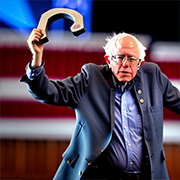|
Are the shippers in transit hosed or can they to sail somewhere else with their cargo? Have the US receivers already paid a normal price for the shipments and the shipping companies get to eat the tariffs?
|
|
|
|

|
| # ? Jun 9, 2024 19:37 |
|
Osama Dozen-Dongs posted:Are the shippers in transit hosed or can they to sail somewhere else with their cargo? Have the US receivers already paid a normal price for the shipments and the shipping companies get to eat the tariffs? They could just turn away. But this wouls be bad for china
|
|
|
|
Osama Dozen-Dongs posted:Are the shippers in transit hosed or can they to sail somewhere else with their cargo? Have the US receivers already paid a normal price for the shipments and the shipping companies get to eat the tariffs? That depends, on a great number of things. First the containers lines don't give a gently caress. It's not their problem. That container is going where it is booked to go. It's the shippers problem. As to if the recievers have paid already, depends. There are shitload of ways to do this stuff. Now bulk shipments and general cargo.... it's probably going to be the charterer's problem. But it would depend on the contracts and the bill of lading. Bulk bill of ladings can be odd, not like more modern bills of ladings. And bulk and general cargo ships might get redirected to somewhere else, sometimes that just happens even when things are normal. If I need to explain what I mean by container, bulk and general cargo let me know.
|
|
|
|
BrandorKP posted:That depends, on a great number of things. Please do, if you'd like to. I have close to no understanding of the topic. Actually I don't even know who's paying for the tariffs. I somehow though it would be the transporter, but on second thought that doesn't really make sense. I guess I started from analogy to personal customs, but in that case you're the transporter and the buyer at the same time - so is it the buyer who gets to pay for them?
|
|
|
|
Osama Dozen-Dongs posted:Are the shippers in transit hosed or can they to sail somewhere else with their cargo? Have the US receivers already paid a normal price for the shipments and the shipping companies get to eat the tariffs? Customs duties are owed the moment the goods enter their customs territory of destination, and they are calculated at that moment. It is nonsensical however that stuff that was already in transit when the rates went up was hit by the rate hikes. Exemptions should be the rule in this instance, not the exception. What you have to understand though is that goods that are shipped to some place have usually already been bought there and (at least partially) been paid for. Transit and taxes, however, are often taken care of as they occur by the buyer (or more precisely, by their freight forwarder, who then presents the bill to the buyer).
|
|
|
|
Osama Dozen-Dongs posted:Please do, if you'd like to. I have close to no understanding of the topic. The container lines run a "liner" service. They put out a scedule ship is going to be here then here on such and such a day. Customers book space in TEU twenty foot equivalents units. They've got to get thier consumer to the terminal by the cut day. Then they get it back at the other end. Now most containers lines are also are vessel operators, that is they run the ships that carry thier containers. But there are also NVOCCs non vessel owning common carriers, that only own containers and book space from lines that own vessels. Common carrier means everybody's containers gets treated the same. General cargo is broader category. Think Handy sized vessels with cranes. Bigger cargos, think steel products, pipes, coils, paper rolls, bulk in IBCs, cases transported break bulk, large pieces, etc. Might take bulk too Bulk think big ships, no cranes. One shipper usually charters the whole thing. For a panamax think like 66000 to 75000 MT (metric tons) of whatever. When soybeans are talked about this is how most of them will be transported. (There is some containerized soy too). Bill of ladings for bulk can be very, very, different than the others. The transporter might depending on the contracts and specifics of the bill of lading be responsible for the tariffs, but probably not. There are also RO-ROs. Big floating parking lots, think of them sort of like general cargo ships. Osama Dozen-Dongs posted:Actually I don't even know who's paying for the tariffs. I somehow though it would be the transporter, but on second thought that doesn't really make sense. I guess I started from analogy to personal customs, but in that case you're the transporter and the buyer at the same time - so is it the buyer who gets to pay for them? Thanks for jumping in Flowers for Algeria you know way more about the details of that than I do. And it is exceptional, either fantastically stupid or it's intended to cause harm to US recievers on purpose.
|
|
|
|
Thanks for the posts, both of you.BrandorKP posted:either fantastically stupid or it's intended to cause harm to US ... on purpose. It's amazing how this whole brouhaha just keeps on loving over Americans. I mean I'm sure it's bad for everyone, but it seems like the US is scoring own goals non-stop.
|
|
|
|
Osama Dozen-Dongs posted:Please do, if you'd like to. I have close to no understanding of the topic. Sorry I did not notice this earlier, I didn't have much time. The answer to your last question is: it totally depends on what the contract between the buyer and the seller says! This works through a thing called "Incoterms". To cut the Wikipedia article short, Incoterms are a special kind of terms in an international commercial contract wherein the parties decide who will be responsible for what costs are that are incurred by transit, by insurance and by customs duties and taxes. In a contract that includes "Ex Works" Incoterms, the price on the bill for the goods will include nothing more than the cost of the goods out of the seller's warehouse. In a contract that inculdes "Delivered Duty Paid", the amount includes transport to a port, international shipping, customs taxes and duties, and transportation to final destination. And there's a whole bunch of variations between these two. This means that in some cases, an agreed-upon price will be hastily revised to take into account a sudden customs duty hike. Or freight forwarders will tell their clients that they have to pay back *this* amount to compensate for the extra amount they had to fork out to get clearance for the goods. But in the end the higher bill is usually eaten by the buyer, or by an unlucky middleman.
|
|
|
|
quote:Trump to announce trade aid for farmers
|
|
|
|
something something barn door something horses. someone help me i'm a white collar city dweller and don't understand rural culture really this would have been wonderful to announce six months ago
|
|
|
|
I bet you could pay for those subsidies by putting tariffs on other goods....
|
|
|
|
Lumpy posted:I bet you could pay for those subsidies by putting tariffs on other goods.... Tariffs can pay for all the handouts to cover the damages done by tariffs. Man, who knew international trade and economics were this easy?
|
|
|
|
Junior G-man posted:Tariffs can pay for all the handouts to cover the damages done by tariffs. Man, who knew international trade and economics were this easy? #MAGA
|
|
|
|
Farm subsidies like that piss off a whole slew of developing nations. They've always been a big point of contention even before WTO, one where the developed nations have always written in exceptions to allow them as the big international trade organizations were made. It's another turbo dick move.
|
|
|
|
Imagine you live in a developing African country as a farmer. You see your government leasing large tracts of the best land to the chinese that the Chinese will largely farm with Chinese. Meanwhile you can't sell anything because US farmers who just lost their main source of demand and are being subsidized are selling anything they can to who ever will buy it. This makes people angry.
|
|
|
|
the united states has long been a food exporter. as a matter of national security you REALLY dont want instability in your agricultural sector and subjecting food producers to ruinous boom/bust cycles, even if it sucks for overseas farmers but boy howdy it would have been nice to figure this poo poo out first and announce it at the same time as the tariffs, not after multiple months of white knuckle farmers staring down bankruptcy. seems a bit unorganized
|
|
|
|
luxury handset posted:the united states has long been a food exporter. as a matter of national security you REALLY dont want instability in your agricultural sector and subjecting food producers to ruinous boom/bust cycles, even if it sucks for overseas farmers It's more than that. The system is ours. How the grain is supposed to be loaded in ships (by international treaty), the standard contracts, the ways in which it is inspected for quality, it's all our constructions. And national security is always the line by which we (and Europe ) defend our subsidies. Thing is we have remarkable systematic and scale and quality advantages that would be hard to overcome without the additional subsidies.
|
|
|
|
luxury handset posted:the united states has long been a food exporter. as a matter of national security you REALLY dont want instability in your agricultural sector and subjecting food producers to ruinous boom/bust cycles, even if it sucks for overseas farmers Maybe, but gently caress is it annoying to watch people bitch forever about unearned handouts and the Free Market only to skip out on the consequences of their vote because we're just going to shower them in money.
|
|
|
|
I believe the Qualcomm/nxp purchase deadline is tomorrow. China still has not approved it yet. If China cockblock Qualcomm, that means the ZTE deal was not a understanding between US and China, and the trade war rage on. Beijing is going to kill the chicken to show up the monkey. tino fucked around with this message at 05:12 on Jul 25, 2018 |
|
|
|
https://www.marketplace.org/2018/07/26/economy/trade-showdown/trumps-trade-announcements-barely-ease-treacherous-path-farmers-face
|
|
|
|
tino posted:I believe the Qualcomm/nxp purchase deadline is tomorrow. China still has not approved it yet. If China cockblock Qualcomm, that means the ZTE deal was not a understanding between US and China, and the trade war rage on. China should just claim national security concerns and cockblock away. Seems to be standard operations for any attempt by a Chinese company to acquire a foreign company.
|
|
|
|
Aren't the 12b just more or less a loan that the farmers still can't really pay off because Trump's hosed up international trade, and thus is a matter of time before these farmers, whose only collateral is their farm, hand their land off to rich people and banks?
|
|
|
|
Crabtree posted:Aren't the 12b just more or less a loan that the farmers still can't really pay off because Trump's hosed up international trade, and thus is a matter of time before these farmers, whose only collateral is their farm, hand their land off to rich people and banks? Oh it's better than that. Only like 1% of farms are small, family farms. This is just a bailout for corporations.
|
|
|
|
Bel Shazar posted:Oh it's better than that. Only like 1% of farms are small, family farms. This is just a bailout for corporations. Oh so this is just handing republican ranches a big fat check they wouldn't even care about while also simultaneously killing those last lingering small potatoes people that aren't aristocracy.
|
|
|
|
Crabtree posted:Oh so this is just handing republican ranches a big fat check they wouldn't even care about while also simultaneously killing those last lingering small potatoes people that aren't aristocracy. Correct.
|
|
|
|
Anecdotally I'm hearing that the smart farmers had contracts and sold before the prices crashed. None of the reporting is suggesting or discussing this. If one wants to watch in September / October to see what is actually happening, one can check out New Orleans, and the Columbia River on AIS, you should be able to spot the elevators and see ships.
|
|
|
|
BrandorKP posted:Anecdotally I'm hearing that the smart farmers had contracts and sold before the prices crashed. None of the reporting is suggesting or discussing this. I heard one person mention that. The other side of it is that's how big farm sales work in general, hence stuff like the futures market. It's practically never "I have X amount of Y crop, who wants it?" but usually "I expect my harvest of Y to be X. You need Z amount in August? Alright, sign here."
|
|
|
|
Well if that's how it works I still expect your Kroger/Wal-Mart/supermarket farms to suffer from this even with some percentage of a bailout coming to them. The poo poo that's just rich people pretending they're men of the land won't really care still though.
|
|
|
|
ToxicSlurpee posted:I heard one person mention that. The other side of it is that's how big farm sales work in general, hence stuff like the futures market. It's practically never "I have X amount of Y crop, who wants it?" but usually "I expect my harvest of Y to be X. You need Z amount in August? Alright, sign here." It depends on what they think the market will do and what they need cash flow wise. If they think they'll get more by waiting, many will wait. They're often trading on a futures market. Somebody is losing thier shirt, a 20 billion dollar drop in valuation is a big deal. There could be a great deal on contract fuckery going on, but most of that's hidden. Also unrelated to grain. I'm seeing ex Hanjin container ships being operated by new Greek owners under new names. So that capacity is still going.
|
|
|
|
BrandorKP posted:It depends on what they think the market will do and what they need cash flow wise. If they think they'll get more by waiting, many will wait. They're often trading on a futures market. Pro tip: most of the bailout is going to go to gigantic corporate farms. I don't honestly see either affecting that guy selling corn out of a fruit stand at the local farmer's market.
|
|
|
|
ToxicSlurpee posted:Pro tip: most of the bailout is going to go to gigantic corporate farms. I don't honestly see either affecting that guy selling corn out of a fruit stand at the local farmer's market. The sweet corn you buy at the store or a market is not the corn being talked about. That is different to the point of almost being a totally different product. Same for soy, this soy isn't the stuff you are eating as tofu or edamame. Mostly it's #2 and #3 corn that is being used as feed that gets sold. Same for the equivalent soy bean grades. This is almost all animal feed. And there are more small, small being a relative term here, players than you would think.
|
|
|
|
BrandorKP posted:The sweet corn you buy at the store or a market is not the corn being talked about. That is different to the point of almost being a totally different product. Same for soy, this soy isn't the stuff you are eating as tofu or edamame. Mostly it's #2 and #3 corn that is being used as feed that gets sold. Same for the equivalent soy bean grades. This is almost all animal feed. And there are more small, small being a relative term here, players than you would think. Yeah giant corporation farms are mostly a thing in the produce market, especially in California. The farms producing soy and corn are typically private corporations owned by a single family. I mean theyíre still large capital intensive businesses, but thatís the reality of family farming in America. There are a bunch of small operations producing less than $10,000 a year but I suspect a lot of those are actually independent small farms but rather family land rented out to the big operators, thatís a common arrangement in the SE anyway. These probably wonít be the farms collecting any subsidies.
|
|
|
|
A couple of articles that are on topic both by Posen. May be a gap between my posting them https://www.foreignaffairs.com/articles/united-states/2018-02-13/post-american-world-economy Foreign Affairs posted:March/April 2018 Issue
|
|
|
|
The second one: https://www.foreignaffairs.com/articles/united-states/2018-07-23/how-trump-repelling-foreign-investment Site is being janky on my phone and B won't let me snag the text. TLDR is Net foreign investment in the US is falling off a cliff. It's a leading indicator. We're loving ourselves with Trump's tariffs and uncertainty and the data is b steering to show it.
|
|
|
|
BrandorKP posted:The second one: Sounds like he's doing the Lord's Work. Edit: I don't feel too bad about foreign entities not taking advantage of race-to-the-bottom tax incentives and credits to 'gift' a few token jobs in the US. Edit 2: You're seriously linking the President of the Peterson Institute, peak neoliberal shithole co-founded by Petey Peterson, the ever lovable co-founder of The Blackstone Group and previously a Nixon goon? Why not Cato or Heritage while you're at it? Horseshoe theory fucked around with this message at 19:29 on Jul 29, 2018 |
|
|
|
Because he's not wrong. I'm also watching it happen, in a concrete sense.
|
|
|
|
BrandorKP posted:Because he's not wrong. He's not wrong that FDI is going down? Probably. That it's horrific? Debatable.
|
|
|
|
Foreign investment in us has nothing to do with economy at large. This isnt a tin pot african dictatorship. Maybe foreign investment in uganda might have an impact but not here. sorry. Omg i wont have a bmw factory in Georgia! What will we do without german cars god the economys gonna tank because meinz bumkopf isnt able to make a profit on american workers
|
|
|
|
LeoMarr posted:Foreign investment in us has nothing to do with economy at large. This isnt a tin pot african dictatorship. Maybe foreign investment in uganda might have an impact but not here. sorry. it means the south, which is a series of tinpot dipshit white peep dictatorships, will suffer (also the midwest) 
|
|
|
|

|
| # ? Jun 9, 2024 19:37 |
|
bob dobbs is dead posted:it means the south, which is a series of tinpot dipshit white peep dictatorships, will suffer Just need capital sweeteners  and scaling tax incentives to replace foreign development. and scaling tax incentives to replace foreign development.
|
|
|



























